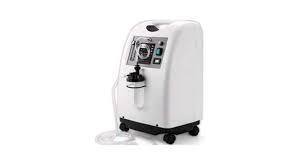In a bid to address the growing concerns over misleading advertisements for herbal and AYUSH products, the Ministry of Ayush has bolstered its enforcement mechanisms through the Central Sector Scheme-Ayush Oushadhi Gunvatta evam Uttpadan Samvardhan Yojana (AOGUSY). Established in 2021, this initiative includes a crucial component—the Pharmacovigilance Program for Ayurveda, Siddha, Unani, and Homoeopathy Drugs (ASU & H Drugs).
The Pharmacovigilance Program operates through a structured three-tier network: the National Pharmacovigilance Centre (NPvCC), five Intermediary Pharmacovigilance Centres (IPvCs), and 99 Peripheral Pharmacovigilance Centres (PPvCs) across the nation. This extensive network is tasked with monitoring and addressing issues related to misleading advertisements.
To date, the program has reported a total of 38,539 misleading advertisements concerning AYUSH drugs. These reports are forwarded to the respective State Licensing Authorities for regulatory action under various legislative frameworks, including:
- The Drugs and Magic Remedies (Objectionable Advertisements) Act, 1954
- The Cable Television Network (Regulation) Act, 1995
- The Consumer Protection Act
- The Emblems and Names (Prevention of Improper Use) Act, 1950
- The Infant Milk Substitutes, Feeding Bottles and Infant Foods (Regulation of Production, Supply and Distribution) Act, 1992
- The Young Persons (Harmful Publications) Act, 1956
Furthermore, under Section 8 (1) of the Drugs and Magic Remedies Act, authorized Gazetted Officers have the power to search premises and seize records that contravene the Act’s provisions.
The Ministry of Ayush has also urged State Drug Licensing Authorities and State Drug Controllers to implement corrective measures against inappropriate advertisements in both electronic and print media. This directive includes initiating actions in accordance with Section 8 (1) of the Drugs and Magic Remedies Act.
In terms of regulatory success, the Ayush Oushadhi Gunvatta evam Uttpadan Samvardhan Yojana (AOGUSY) scheme has been pivotal in monitoring the safety of ASU & H drugs. The All India Institute of Ayurveda (AIIA), New Delhi, serves as the National Pharmacovigilance Co-ordination Centre (NPvCC) overseeing the national program’s implementation.
The Department of Consumer Affairs (DoCA) has also been actively involved through its Grievances Against Misleading Advertisements (GAMA) portal, which facilitates the handling of misleading ad complaints. Additionally, the Ministry of Information and Broadcasting (MOIB) is responsible for regulating TV advertisements, and the Press Council of India (PCI) continues to address violations in print media.
In total, approximately 358 AYUSH brands have been issued notices for regulatory breaches, and enforcement actions are ongoing to curb the spread of misleading claims and ensure consumer protection.
Details of misleading advertisements related to Ayush drugs noticed by Pharmacovigilance and reported to the SLAs in last three years are as follows:
| Year | Misleading Advertisements |
| 2021 | 8144 + 43 (COVID) |
| 2022 | 7367 + 4 (COVID) |
| 2023 | 7771 |
| 2024 | 4372 |
This information was given by the Minister of State (IC) for Ayush Shri Prataprao Jadhav in the Lok Sabha in a written reply to a question yesterday.












